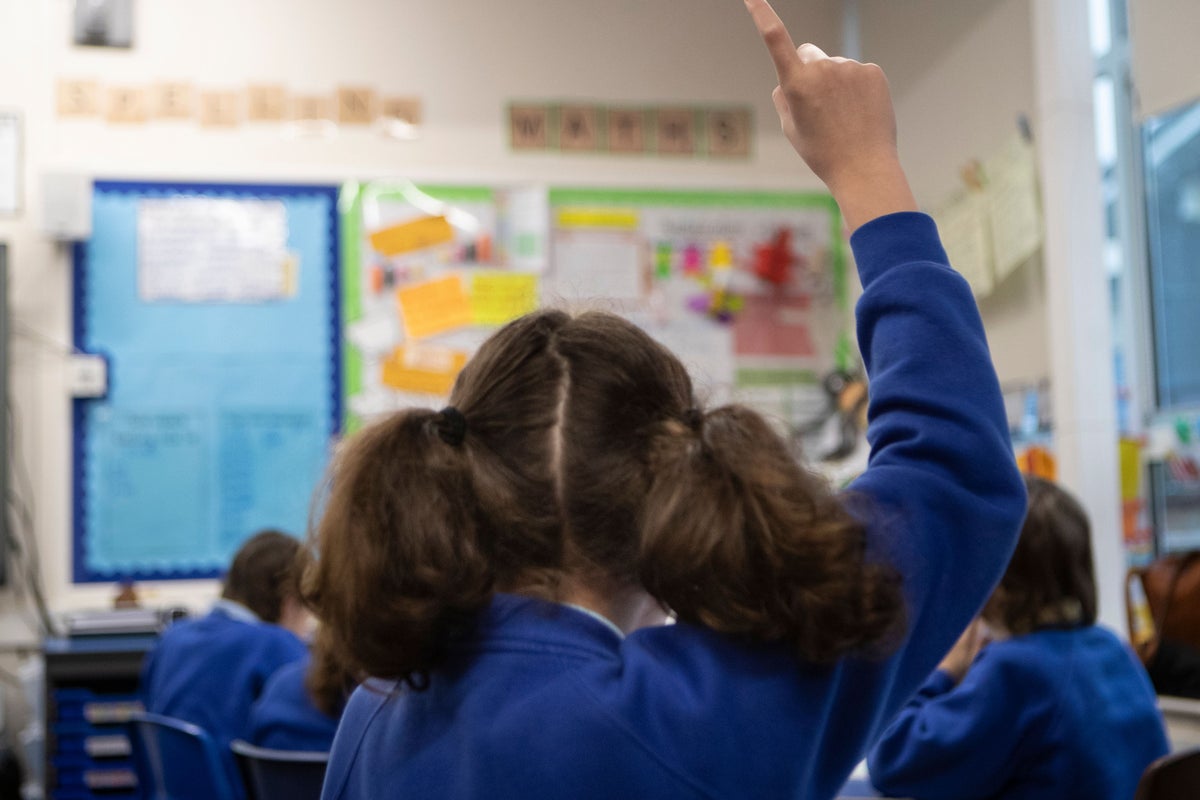
There are signs that more children are gaining places at their first choice of primary school in a number of areas in England, a survey suggests.
Hundreds of thousands of families across England are finding out which primary school their child will be joining this September, on what is commonly known as National Offer Day.
Early findings from a PA news agency survey of local authorities shows a youngster’s chances of winning a place at their preferred school varies significantly depending on where they live in the country.
The survey, sent to councils across England, excluding London, shows a number of local authorities have seen a rise in the proportion of children receiving their first choice compared with last year.
As of midday on Monday, 20 of 35 councils, which provided comparable data, saw a rise in the proportion of children securing their preferred school compared to 2022.
New schools and new school places are not always being commissioned where they are most needed. This leaves families at the mercy of a postcode lottery when it comes to getting their first choice of school place— Paul Whiteman, NAHT
Meanwhile, 14 councils have seen a decline in the proportion of families securing their top choice, and one council reported no change.
Among the areas where high proportions of pupils have obtained their first preference are Stockton-on-Tees in County Durham where 98.3% got their top choice, and Calderdale in West Yorkshire where 97.9% were offered their first pick.
In comparison, in Wokingham in Berkshire, 88.8% of children got their first preference, while in Sefton in Merseyside 89% got their top choice.
England’s school system has been put under pressure in recent years as a population bulge has been moving into secondary schools.
Paul Whiteman, general secretary of school leaders’ union NAHT, which represents the majority of primary school leaders, said: “This can be an anxious time for families. Choosing the right school and securing a place there is a huge moment in a child’s life.
“Yet it can be an uphill struggle for parents, and not all will get the place they wanted for their child.
Today thousands of families across England will find out which school their child will join in September, and the majority will have received their first choice of primary school— Department for Education spokeswoman
“Local authorities are responsible for ensuring there are sufficient school places, but they no longer have the powers and resources necessary to do so.
“The result is a messy, fragmented system, in which new schools and new school places are not always being commissioned where they are most needed. This leaves families at the mercy of a postcode lottery when it comes to getting their first choice of school place.
“We urge the government to fix this broken system and create a national strategy to guarantee there are enough school places for every child in England and take away the worry and stress for parents.”
Geoff Barton, general secretary of the Association of School and College Leaders (ASCL), said: “Overall, the number of children of primary school age is in decline, so the big challenge for many schools is how to adjust to lower numbers.
“However, some schools will continue to be oversubscribed and families will miss out on places.
“This generally happens because schools are in relatively affluent areas and have Ofsted ratings of ‘good’ or ‘outstanding’, while other schools in other areas may be stigmatised by negative ratings.”
Official data shows that last year 92.2% of pupils were offered their first choice of primary school – which was up on 91.8 % in 2021.
A Department for Education (DfE) spokeswoman said: “Today thousands of families across England will find out which school their child will join in September, and the majority will have received their first choice of primary school.”
She added: “We have created almost 1.2 million places since 2010, the largest increase in school capacity in at least two generations, and work closely with local authorities to make sure they offer a school place to every child in the country and support the long-term viability of their schools.”







